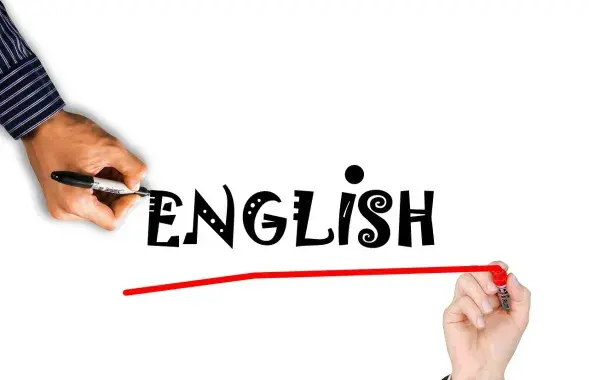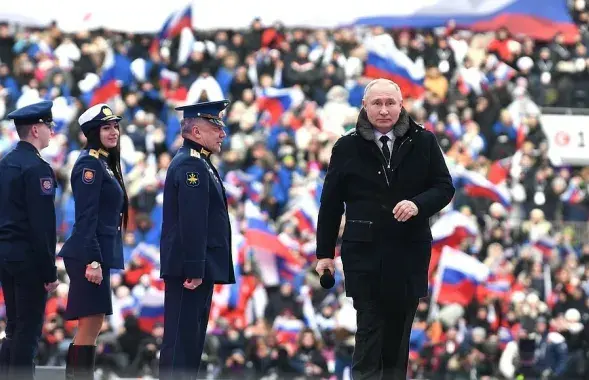Zaika: 2011 will be the year of great division
About 70 big enterprises will be divided by the President personally, others - by the officials, to the opinion of the economist Leanid Zaika. He is convinced t
Euroradio: What will change in the Belarusian economy in 2011 in comparison with 2010? There is an opinion that reforms are inevitable as it will be impossible to leave everything as it is...
Leanid Zaika: There will be a little pump priming, a stirring consumer rhythm in the end of the year. So, the beginning of the next year will be a festive one. The population will face the joy of income increase. I would call it a festive presidential electoral year, when incomes grow. The peak comes in December and January and then people find out the prices also grow and maybe even faster than their salaries. So, a sort of return to reality will take place in February-March.
2011 will be the year of great division - officials will stand "holding spoons". About 70 big enterprises will be divided by the President personally, others - by the officials.
Thus, the year will be an interesting one, it will be unexpected with regard to appearance of new proprietors, there will be a helter-skelter around the state enterprises. Foreigners will come, offering to build hotels or Disney-lands. There will be a completely confused background. However, it won't be funny - the property will be divided.
You say, privatization will be a nomenclature one. Shall we expect any other kind of privatization next year?
This will depend on the outcome of the election. If a current President is re-elected, we will face the same privatization as in Ukraine, Russia and Georgia. It will be the privatization which includes three the most important elements of any society - nomenclature, security agencies and criminal structures. There cannot be some neutral, or people's, privatization.
What if other authority comes?
In case the democratic forces rule the country, there won't be such privatization. As for big enterprises, privatization can be conducted one by one. As for medium and small ones - they can wait, or do it like in China. Chinese communists have not touched the state property for 20 years, but they provided an opportunity for small and medium business to develop.
Don't touch these state enterprises, don't divide them between an administration chief, a chief policeman, a public prosecutor and a crime boss... Let the state property work as it does now. However, give everyone an opportunity to develop their own business, provide land. When a decent medium and small business develops in our country, all the problems of the enterprises will fade away.
So you think we should not expect any structural changes in 2011 as well...
On the whole, we should not think about it. We have 70 big enterprises, we can get 70 directors in one hall and they will tell how to restructure enterprises, they are not that stupid.
As to the rest, we need to conduct an administrative reform and decrease the number of ministries to 12. We can dismiss the Ministry of Economics without any hesitation and create a national agency of economical policy instead, with 50-70 employees, this will be enough. We can dismiss ministries, committees, subcommittees etc. that we don't need upon the same scenario. What we need is to make our government mobile and light. This should be the starting point for creating of the democratic society and transfer to the free economy.
If Lukashenka remains President, everything will stay as it is. The debts will grow, we will try to catch up with the prices, 930 thousand pensioners will think of when their pensions will be increased, and the youth will think of completing their studies as soon as possible and going abroad for employment.
You mean, our government has no alternative variants on how to build up the economy?
Our post-Soviet nomenclature government with exaggerated staff needs to be told about something for 15 years before they react on that - their reaction is like the one of a dinosaur. Young people see that, pack their backpacks and leave.
However, liberalization has just started, hasn't it?
A couple of years ago some independent Belarusian economists had an idea to create a program on business development. I can tell you there was a sort of revolutionary splash in 2010- national business platform positions were implemented with regard to the most important spheres, like licensing, taxes, rent payment.
Liberalization is not just some actions of the government, it's a certain moral condition of the society. It's when initiative and entrepreneurship are encouraged. Here we took a step forward.
However, there is another important moment. Nomenclature needs liberalization for privatization. Two powerful streams of desire collide here: nomenclature's and businessmen's. I would say the nomenclature needs liberalization more than the businessmen at the moment. The Minsk automobile plant or the Minsk tractor plant have no need for liberalization. It is better for the state enterprises when the level of state regulation is high - the state grants markets, sales, incomes, salaries… Liberalization will become necessary when our officials, ministers and their friends start division of these enterprises.
Our relations with Russia are now getting worse. Can we survive without the Russian market? What shall we expect and which alternative options do we have?
Russia has introduced a special "Lukashenka tax" with the help of oil and gas prices - this is approximately 4 billion dollars, thus, 400 dollars per person. If there is another President, I can assure you all the problems connected with Putin and oil and gas prices will be solved in half an hour. Belarus will have normal market relations with Russia. Thus, the Belarusians are to choose how to live in 2011, on December 19.
But still, what resources do we have to survive without the Russian market?
We can have well-balanced economic relations with the rest of the world, with Asian countries, with the third world countries. The EU presents a stable external economic area, but it's just 1/3. I think it can look approximately like that: Russia - 1/3, EU - 1/3, the rest of the world - 1/3. This would be an optimal formula of multi-vector external economic activity.
Russia is about to complete construction of the Nord Stream. Our pipelines took approximately 30% of hydrocarbon shipments to Europe, 70% of them are pipelines through Ukraine. Now Russia will introduce the Nord Stream, and no one will need us anymore. We should be more realistic, restrain from the grand projects of our recognition in Europe, stop thinking we are the center of Europe and everyone wants to invest in us…
This year we had the last trench of the IMF credit, and money from selling "Beltransgas"... We will have none of this in 2011. Can we survive by ourselves without some additional credit lines?
I think that we had absolutely no need for IMF's 3,6 billion dollars. In 2011 and 2012 we'll have to pay the credits we've taken in 2009 and 2010. Belarusians have taken about 22 billion dollars of credits. This makes a rather good sum - approximately 2200 dollars per person. Thus, if it is a family with two children, who will pay 8 thousand dollars?
What if we have to add some two thousand to the eight thousand per family, in 2011?
I think that's crazy. It's self-indulgence, we need to get back to normal position, to decrease consumption, not to live in credit. We should not increase salaries by 10-30%. Why do we increase salaries and pensions by 10-30% when our gross domestic product has grown only by 6,5%? In Soviet times, we would have been sent to camps for 10 years without the right for correspondence for that.
The economical policy which is implemented in our country does not meet even the standards of the Marxist-Leninist parties. Everything is done in accordance with the anarchist, left-oriented policy of flash-forward. I think we should not borrow money, we need to restrict consumption. We should live up to income.
It is clear what should be done, but what do you think they will do - will they keep on taking credits or start giving the money back?
Belarusians started making conclusions - they exchange the Belarusian roubles printed by our government for dollars and euros. That means, Belarusians have regained consciousness. They realise that if the government borrows so much money, then this government will decrease the rate of the rouble. Thus, there will be a devaluation, the rouble will get cheaper.
What will remain stable? Dollar and euro. Thus, people do the right thing when they save more, when they don't spend their salaries but converse them into dollars. The population will force the government into the strict limits with the help of this method - negative payment balance will occur, accompanied by a serious need for foreign currency, we will need to sell more, to export more.
You've touched the question of devaluation. Will it take place next year or will they manage to hold down the rouble?
How can we explain devaluation? It happens when we buy more foreign goods then sell. Thus, we acquire currency deficit, it becomes more expensive and we have to conduct devaluation. So, since this year we have had a 600-million dollars negative balance with Russia alone. I don't know what they think about in the cabinets: the first month - minus 600 million, the second month - minus 600 million...
That is why devaluation is absolutely necessary in order to bring round our consumer complex, our policy-makers.
The point is, how will it be conducted - quickly and drastically, as in the beginning of last year, when they announced we had become poorer by 15%?
I have always suggested to do it slowly : 2-3% per month maximum, to devaluate the BR little by little until it stops on an equilibrium value.
To tell the truth, it is better to cross out three zeros in Belarusian money, as it is ridiculous - three thousand roubles per one dollar. There are only 3-4 countries left in the world where the nominal value in dollar terms is counted by thousands. We need to cross out three zeros in order our rouble to become weightier. This could be the starting point of bringing round our economy class - the rouble is more expensive, so we need to be more provident etc. It's not even devaluation, it's a monetary reform.
Election is coming closer and closer... How will it influence the economy? Does it spoil the economy? No painful measures will be taken right now - any restructuring causes unemployment increase, dismissals... It is clear no one will do that now. But what about after the election?
Our election tradition is that salaries and incomes are always increased in the year of election. People are simply "bought" like this. Investments go down, people are happy and buy 19% more…
2010 is not a year of enterprises, not a year of reasonable economy. It is a year of politics, ending of one political cycle and beginning of another. The economical cycle subordinates the political one. Truly, in such periods enterprises do not save money for investment as they need to pay big salaries - they cannot renew equipment, technical resources, cannot have any financial perspectives.
Thus, this year is a negative one for the business cycle. The next one, 2011, will be the year of anxiety. We will slowly regain consciousness, like after drinking too much alcohol. Prices will start growing, we will feverishly think what to do with the rouble, and look whom to borrow money from.
Well, for example, China can give us 15 billion...
Of course China will give us 15 billion. And we will buy Chinese technical utensils, machines, automobiles, tools, equipment in exchange. The Chinese are smart - they will sell their goods and we'll owe them 15 billion. These ridiculous and rather dangerous steps of borrowing money, of creating complicated schemes for raw materials shipments - they prevent us from normal development.
Belarus is a small open economy. We need to build up our economic development through strengthening of our market advantages, encouraging of medium and small business, entrepreneurship, construction of infrastructure, creating a country with decent conditions for business.
Belarus is not a country convenient for manufacturing of dump trucks - it is a country convenient for Europeans, and Russians, to come here to rest, to work, to create new manufactures, and personnel potential…
















